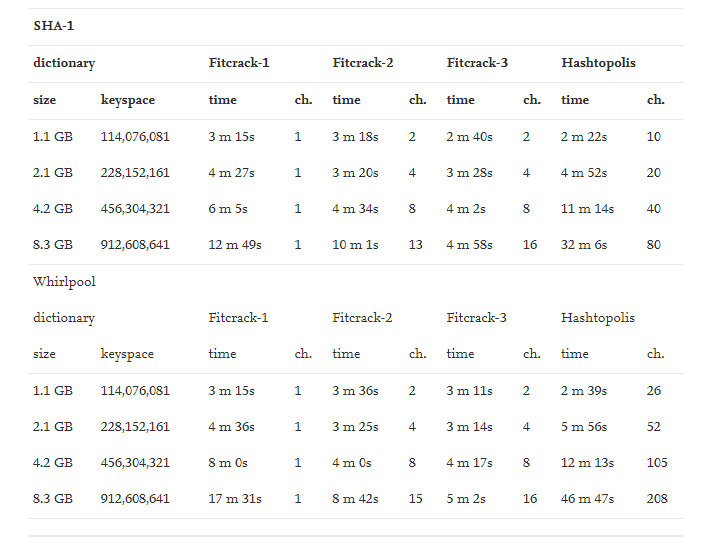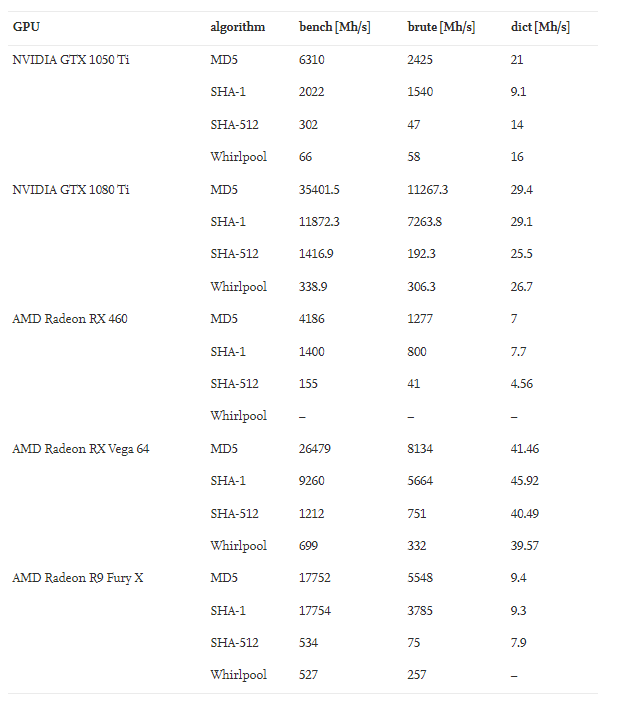Good Passwords
- How does john try to break passwords?
- Items from /etc/passwd
- Wordlists
- Mangling rules
- Successfully guessed passwords are crypted with all user hashes as salt.
- Brute Force Attacks.
- How were the word lists formed?
- How long would a brute force attack take.
- Copy this down and ask questions.
- I will try to post the spreadsheet but ....
- Exceptional password crackers
- A really good article
- Discusses distributed password attacks.
- With both GPU and CPU
- Nice history/summary
- An experiment
- 8 nodes with NVIDIA GTX 1050 Ti GPU
- 1.2GB to 8.3GB dictionaries
- The password was at the end of the dictionary
-

- Check this vs our computations!.
- In another test they found that dictionary attacks are slower than brute force attempts
-

- Time spent in loading words from dictionary.
- But look at the speeds!
- This is a good paper, I will probably read it in full.
- They give guidelines for good passwords
- Make the alphabet large.
- Long Passwords
- Don't use words!
- Probably not modified words either.
- Use something you can remember.
- Do not use the same password on different sites.
- Change your passwords regularly
- Don't write your passwords down.
- Be careful of social engineering.
- Passphrases
-

- Use a phrase of short words.
- Mix in numbers
- Weak example: IamtheCaptianofthePina4
- Strong Example 3BeeorNotTobeTh4t1$The?
- Can lead to very strong passwords that can be remembered.
- Passphrases might not be required for passwords.
- Guides for passphrases
- Long enough
- Not a famous quotation.
- Not associated with you (hard to guess)
- Something you can remember.
- Not reused.
- We have sort of discussed security questions
- This is somewhat unexplored.
- But we have seen multiple examples of how unless the questions are carefully drafted they lead to less security.
- And they have the same problems as passwords
- What is your favorite food?
- Will it be the same in 4 years?
- Will you spell it the same way?
- Gestures and other such authentication methods are becoming more common.


